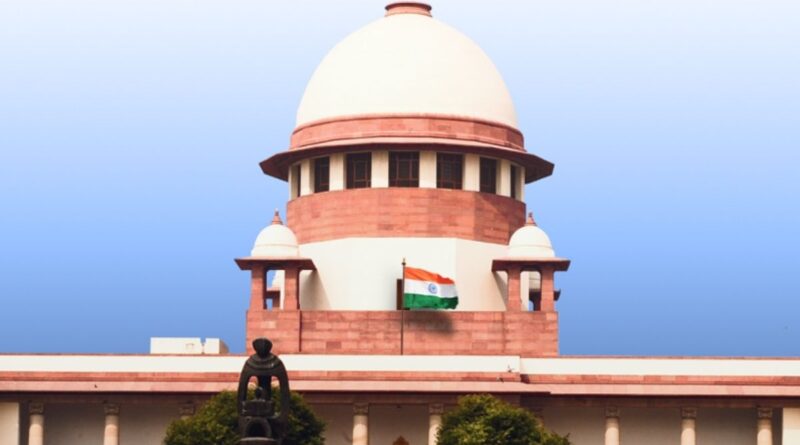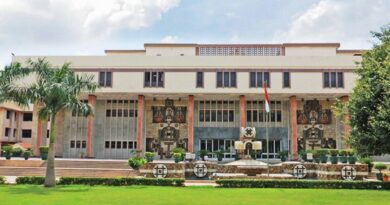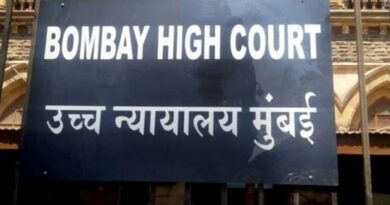Waqf Amendment Act 2025: Supreme Court’s Interim Order Explained
On 15 September 2025, the Supreme Court gave an important interim ruling on the constitutional challenge to the Waqf (Amendment) Act, 2025. Several petitions had argued that the new provisions were arbitrary, discriminatory, and violated fundamental rights under Articles 14, 15, 25, and 26 of the Constitution.
A Bench of CJI B.R. Gavai and Justice Augustine George Masih refused to suspend the entire law but granted partial relief by staying some controversial provisions.
The Act has stirred major constitutional and political debates. Multiple petitions were filed by leaders such as Amanatullah Khan, Asaduddin Owaisi, MP Mohammad Jawed, and organisations like the All India Muslim Personal Law Board (AIMPLB).
Below is the full timeline of events and the highlights of the Supreme Court’s order.
Chronology of Events
- 3 April 2025 – Lok Sabha passes the Waqf (Amendment) Bill.
- 4 April 2025 – Rajya Sabha clears the Bill.
- 5 April 2025 – President Droupadi Murmu gives assent. Soon after, AAP leader Amanatullah Khan files the first petition in the Supreme Court. More petitions follow.
- April 2025 – AIMIM leader Asaduddin Owaisi, MP Mohammad Jawed, and AIMPLB also approach the Court.
- 17 April 2025 – Supreme Court takes up the matter, names it In Re: Waqf (Amendment) Act, 2025. The Centre assures that no waqf properties will be denotified during the proceedings.
- 25 April 2025 – Centre seeks dismissal of the petitions, arguing against a blanket stay.
- 29 April 2025 – SC declines to entertain fresh petitions.
- 5 May 2025 – Then CJI Sanjiv Khanna states the matter will be heard by Justice B.R. Gavai after he assumes office.
- 15 May 2025 – CJI Gavai lists the case for interim hearing.
- 20–22 May 2025 – Court hears detailed arguments and reserves orders.
- 15 September 2025 – Supreme Court delivers interim ruling: partial stay granted, Act continues otherwise.
Key Highlights of the Supreme Court’s Interim Order
- Presumption of Constitutionality
- Court reiterated that laws passed by Parliament are presumed valid.
- Hence, the Act itself was not stayed.
- Five-Year Practising Muslim Clause (Stayed)
- Requirement that a person must be a practising Muslim for five years before dedicating property as waqf has been suspended.
- This clause will remain on hold until state governments frame proper rules.
- Dispute Resolution by Government Officers (Stayed)
- Provision empowering government officers to decide disputes over waqf property and government land was struck down.
- Court ruled that executive officers cannot decide citizens’ rights; such matters must go before tribunals.
- No third-party rights can be created over disputed waqf properties till tribunals decide.
- Non-Muslim Members in Waqf Boards (Not Stayed)
- The inclusion of non-Muslim members in Waqf Boards stands.
- However, the Court directed that, as far as possible, ex officio members should be Muslims.
- Non-Muslim members capped: maximum of four in the Central Waqf Council and three in State Waqf Boards.
- Prima Facie Observations
- Court clarified its findings are only preliminary and will not affect final arguments.
- Petitioners can still challenge other parts of the Act.
Legislative History of Waqf in India
- Mussalman Wakf Act, 1923 – First law to regulate waqfs, aimed at curbing misuse of religious endowments.
- Bengal Wakf Act, 1934 – Recognised “Waqf by User,” i.e., properties continuously used for religious purposes without formal dedication.
- Wakf Act, 1954 – First central law post-independence; made registration compulsory and created Waqf Boards.
- Wakf Enquiry Committee (1969–70) & Amendment Act, 1984 – Reported large-scale mismanagement and suggested reforms. Amendments brought stricter oversight, though enforcement was weak.
- Waqf Act, 1995 – Consolidated and modernised waqf law; expanded Waqf Boards’ powers, but issues like encroachments and disputes persisted.
Case Details
Case Title: In Re: The Waqf (Amendment) Act, 2025
W.P. (C) No. 276/2025





